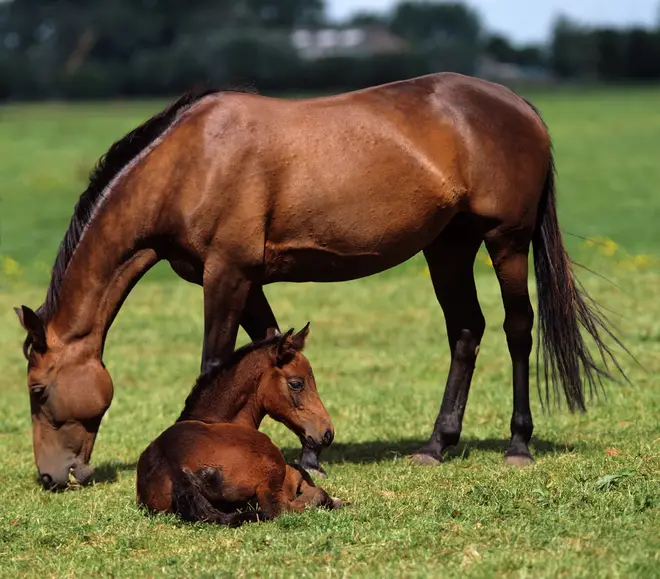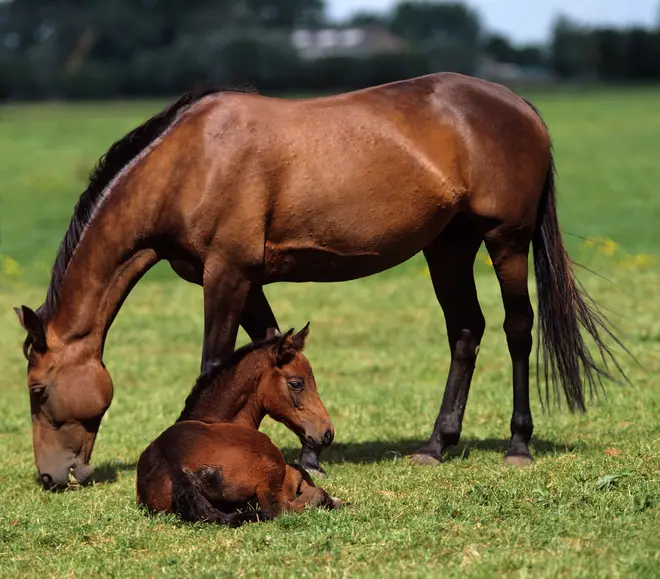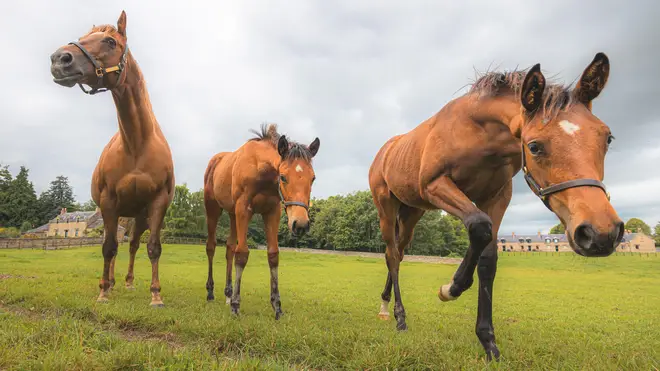
Paul Brand 10am - 12pm
27 November 2023, 19:42

A Cleveland Bay horse, called Harmony, has been found dead after a member of the public fed her, a breeder has claimed.
The mare, who was pregnant at the time, was discovered by breeder William Medforth at Penrhyn Stud in Caernarfon, Wales.
It now appears that Nant Loyw Harmony, was fed over her fence by a well-meaning but "ignorant" member of the public.
The 16-year-old horse had given birth to two foals and was pregnant with her third before she was killed.
Mr Medforth wants to raise awareness about the danger of feeding horses without permission from the owners.
He said: "This is a breed rarer than the giant panda, so to lose one of our most prolific brood mares and her unborn foal is not just devastating for our breeding programme, it’s damaging for the breed as a whole."
According to the breeder, the area around the now-dead mare was "extensively grazed", a sign that Harmony had been eating food from the ground.
Read more: Pony 'forced' off cliff at Swansea beauty spot by 'selfie takers', says farmer
Read more: Plane forced to turn round after horse gets loose on flight
Mr Medforth added that the horses are fed well, even though during the winter months there is less grass on muddier grounds.
Only 15 to 20 female Clevelands are born globally, according to Mr Medforth.

Harmony was especially valuable because of the purity of her "old breeding bloodlines".
It is unknown what food item killed Harmony.
Another horse, called Dimple, died three years ago in similar circumstances.
The Penrhyn Stud, established in 1972, has a worldwide reputation for breeding Cleveland horses, England's oldest breed according to the Cleveland Bay Horse Society.
They are known to have docile temperaments, and sensible personalities and are an intelligent breed.
Cleveland Bay horses date back to the 17th century and thrived due to their adaptability.
They were initially used by monks to carry goods between abbeys and monasteries.
The breed gained the nickname "Chapman Horses" in the Middle Ages when they carried goods for travelling salesmen, also known as Chapman.
However, the numbers decreased to just four in the UK but were saved by Queen Elizabeth II, who bought a male horse.
He was called Mulgrave Supreme, born in 1961 and was reserved for export.

The Penrhyn Stud Farm was given royal patronage for its work with the horses and is just one of under 30 registered breeders who have been working since 2020.
The RSCA advises horses should never be fed lawn clippings to "large amounts of fermentable foods such as apples, as they can be toxic and even fatal".
The British Horse Society warns that horses' stomachs are "relatively small" and that the animal should be fed "little and often".